Why is effective waste sorting urgently needed in Georgia?
Why do we need waste sorting in Georgia and what do we need to know about it
According to the World Bank data, more than two billion tons of solid household waste is generated on planet Earth every year.
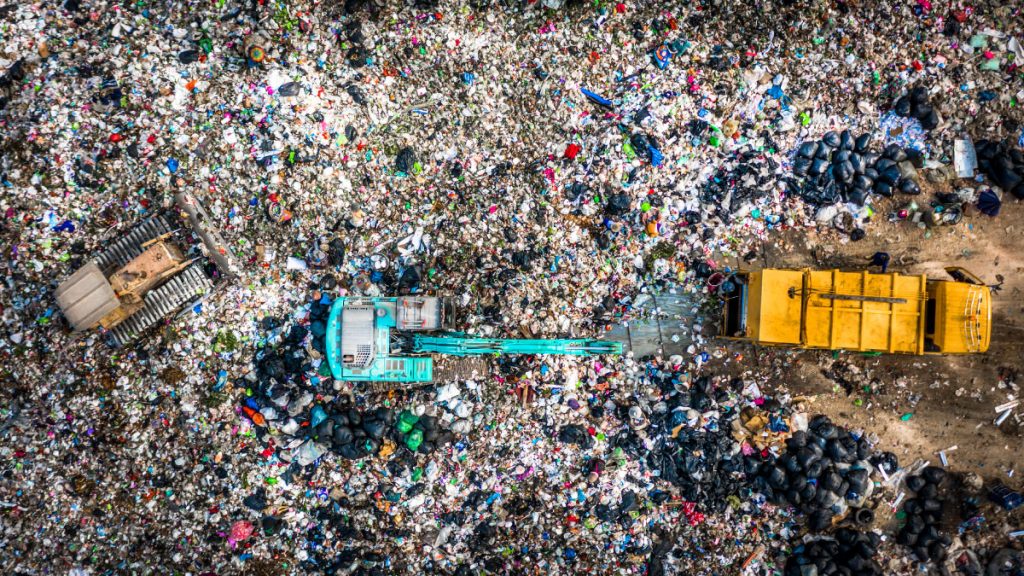
By 2050, the number is expected to increase by 70%. The conclusions are pretty straightforward – if people do not learn to manage their waste, our planet will soon look like one huge landfill.
- The village near Tbilisi where people cannot open windows due to the smell of garbage. Video
- A story of how one Georgian resort’s decline helped restore rural business. Vlog
- Avoid the fine – zonal parking returns to Tbilisi
- Living in a house made of straw
In developed countries, it goes without saying that everyone needs to sort their waste. However, people in Georgia still have very little information about the issue and many have no idea why it is important to sort one’s household waste.
JAMnews and Coca-Cola Bottlers Georgia answer the most common questions about waste management and sorting:
First, we need to realize the scale of the problem
Studies show that two billion tons of municipal solid waste is generated worldwide every year, of which 45% is organic and food waste, 20% is paper and cardboard, and 15% is plastic waste.
About 90% of waste ends up in giant landfills, where it decomposes and rots over time. It takes several hundred years for some materials to decompose completely. For example, the complete disintegration of a polyethylene bag takes approximately 100-200 years, whereas an aluminum jar takes about 500 years.
This process pollutes the land and the oceans and destroys an entire ecosystems.
It also takes a very long time for the contaminated soil to heal.
The problem of solid waste pollution is being addressed not just by environmental organizations and activists, but also by large companies.
For instance, Coca-Cola plans to completely switch to recyclable packaging by 2025. From 2030, the company promises to collect and recycle one hundred percent of the packaging it produces.
The modern approach to waste management considers used packaging not as ‘garbage’, but as a precious raw material that must be given a new life. This approach is shared by Coca-Cola and is incorporated into the company’s strategy.
If not for a landfill, where should the waste go?
Plastic waste need not be polluting the entire planet. In fact, a large portion of it can be recycled and used to make new products.
Plastic manufacturers and other large companies are taking up what is called a circular economy. They are actively developing the practice of polymer recycling.
There already exist several special enterprises and collection points. But it is impossible to set up such business successfully without the participation of the population.
As long as people do not sort their garbage, landfills will keep growing.
What is waste sorting?
Waste sorting is the process by which waste is separated into different containers.
This process is necessary for further recycling and avoiding the rotting in the landfills and pollution.
For example, we can use plastic bottles to produce new bottles, create a cover for a soccer field or make a nice handbag.
In order for a special plant to recycle used plastic, it must be separated from other waste. If, instead, it is mixed with cucumber skin or egg yolk, it cannot be processed.
In countries where waste sorting is a common practice, colored containers have been introduced. Green is used for glass (bottles and broken dishes), blue is for paper (newspapers and magazines), yellow is for metal, black is for organic and food waste, red is for hazardous or unprocessed waste (batteries), and orange is for plastic bottles and packaging.
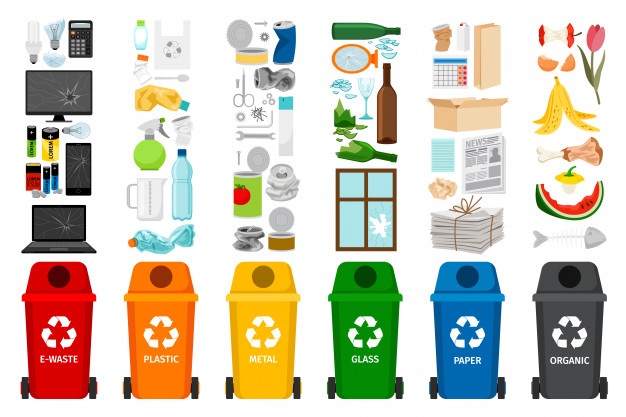
When waste is sorted in this way, it is much more manageable.
I have never sorted waste before, where do I begin?
To begin with, you don’t have to sort your garbage into all kinds of recyclable waste at once (although you could do that too). Instead, you can start by sorting just one or two types of waste. You may allocate one of two containers for different types of waste (do not worry, it is not that hard). For instance, you could start by sorting paper, plastic and hazardous waste, such as batteries and mercury thermometers separately. You could fold cardboard and paper waste into a large box and place it in some corner at home. Battles do not require any special container – a little box or jar will do.
It is a bit more complicated with plastic waste. If you drink Coca-Cola or some other carbonated beverage often, you need to set aside a separate bin for this type of waste. A standard waste bin usually fits 10-12 half-liter bottles, but if you crush those bottles, it can fit much more than that. It is also recommended to dispose of plastic in this way – if the bottles are crushed, the garbage truck can take on more of them at once.
You do not even have to buy any containers. You could use durable reusable bags to take your sorted garbage to the collection point.
Another option is to collect all recyclable waste in one container or bag and sort it out at the collection point. Speaking of, some collection points take all the used waste in a single container.
Is it possible to sort waste in Georgia?
Georgia is not a great place for waste management on the municipal level, but you can still find quite a few special containers and collection points. Here is a map of all such places, where you can find one closest to your home.
What are some of the things produced from recycled waste?
Coca-Cola has started producing aluminum cans from used aluminum. It is gradually introducing these cans around the world:
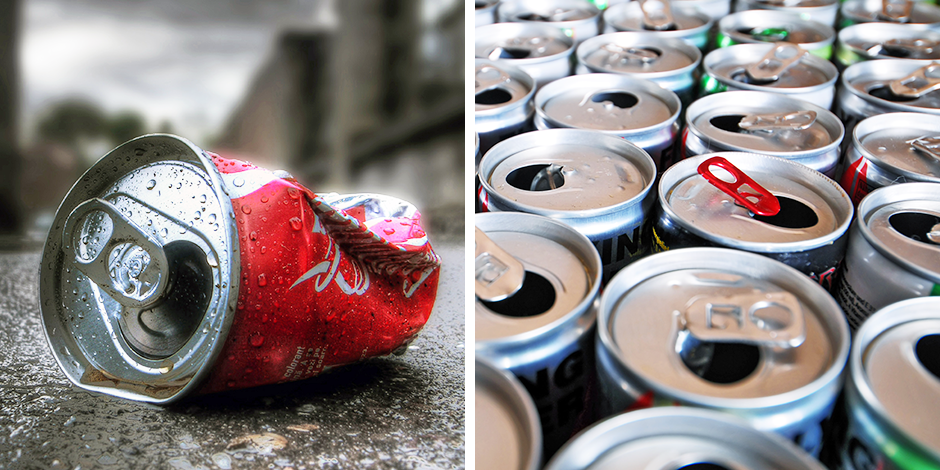
In 2020 Adidas covered a whole football field in Miami using some 1.8 million recycled plastic bottles.
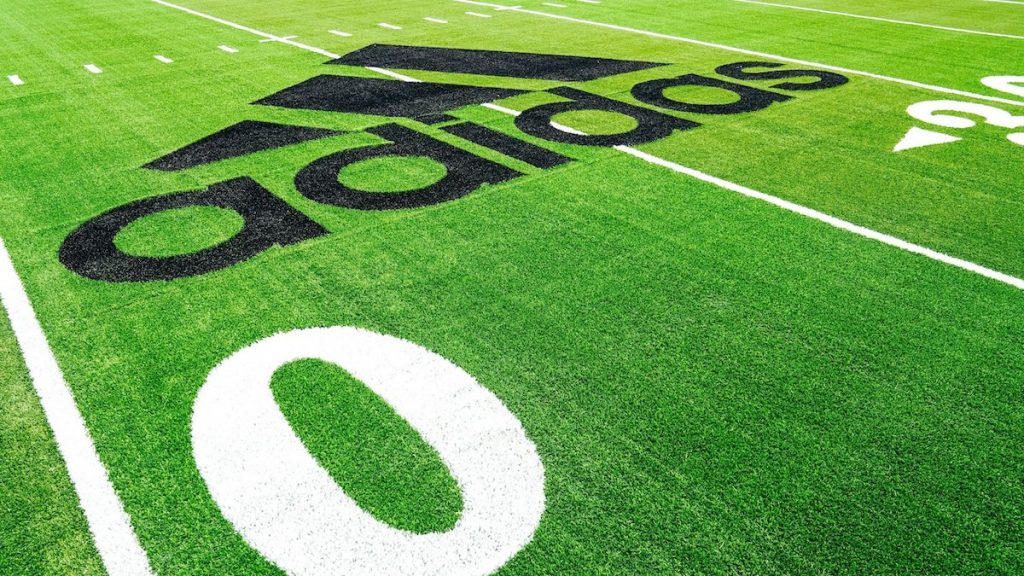
Another example from the sport industry is the Johan Cruyff Arena in Amsterdam. Its 53,000 chairs are made of recycled plastic.
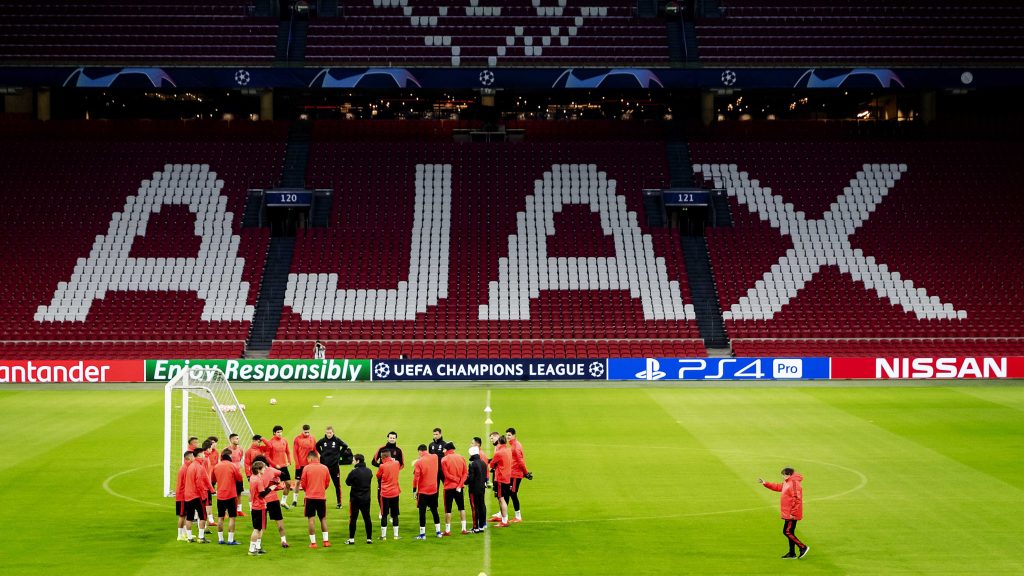
Recycled plastic can also be used to fix roads. This technology is used in India, where waste management is particularly difficult:
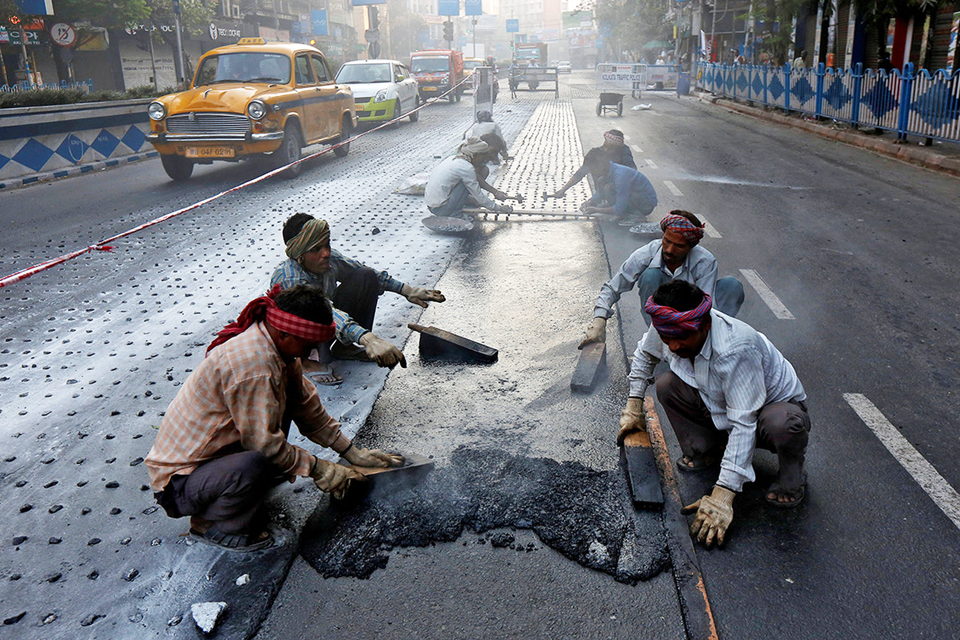
Recycled plastic, glass and other materials are also used to produce new construction materials, furniture, pillows, blankets and even clothes.
Gucci was one of the first fashion companies to create a whole line of clothing and accessories from recycled materials:



















